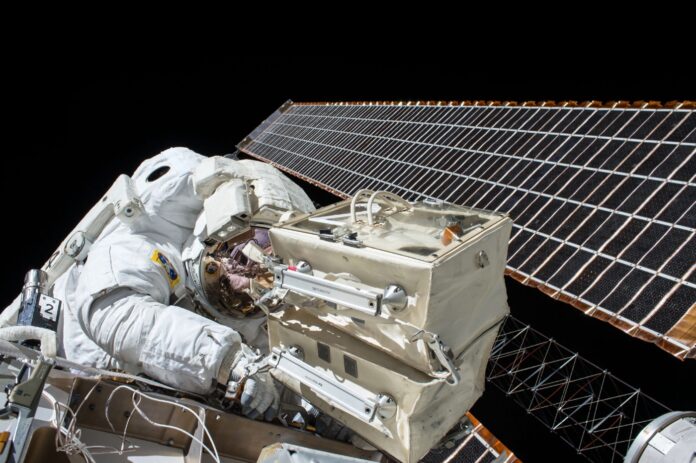Jeff Bezos, founder of Amazon and Blue Origin believes that to avoid a terrestrial environmental disaster and preserve the planet, we need to move people into outer space and transfer much of our manufacturing capacity there.
Unlike Elon Musk who sees a multiplanetary strategy as the means for our species to survive, Bezos sees colonies in near-Earth space as the remedy for what ails the planet. He has stated in past interviews that the human species is already consuming the resources of more than one Earth every year. He notes that there is only a finite amount of space on the planet, but an almost infinite amount when we move beyond our atmosphere. In an interview four years ago, Bezos said, “We have the resources to build room for a trillion humans in this solar system, and when we have a trillion humans, we’ll have a thousand Einsteins and a thousand Mozarts. It will be a way more interesting place to live.”
Bezos sees a limit to growth from human activity if we remain planet-bound. In that same interview, he noted, “if we stay on this planet…we will have to stop growing, which I think is a very bad future. It’s not the future that I want for my grandchildren or my grandchildren’s grandchildren.”
Once we no longer are bound to the planet humans will be able to take advantage of an unending source of energy, solar power, and be able to transfer heavy industry from the planet to space. His vision is that in decades we will be able to do a lot more things off-Earth than on and supply space colonies and those who remain on the planet from dedicated space manufacturing facilities. He calls this change the “Great Inversion.”
Is This The Space Future Others See?
NASA after assembling the International Space Station (ISS) from manufacturing components on Earth coming from numerous national and commercial partners, and lugging them into orbit, sees merit in the argument. At least that’s the way it appears as the U.S. space agency places bets on potential winners in a space manufacturing future.
On April 15th NASA announced it was providing Phase 1 seed money amounting to $38 million for more than a dozen companies who submitted proposals to develop space manufacturing capacity. The agency believes in the value of building an industrial base in space that is sustainable, scalable, and profitable. So through the rest of this decade while the ISS remains in orbit, it is becoming a laboratory for the “future production of important new materials and products that will benefit people everywhere on Earth,” states Kevin Engelbert, In Space Production Applications portfolio manager for NASA.
A sample of applications accepted by NASA includes companies who want to:
- bio-manufacture drug-delivery medical devices and human organs.
- develop stem cell production processes in microgravity for treating human diseases.
- use microgravity properties to perfect the production of new drugs.
- create multifunction DNA-inspired nanomaterials.
- fabricate glass without flaws for photonics.
- build semimetal-semiconductor composite bulk crystals.
These first small steps for humankind may eventually flower into Bezos’ vision of a planet no longer environmentally compromised by too many of us on it, and exploiting and polluting it beyond its carrying capacity. Bezos sees a future when a trillion humans will live on and off the planet. The bulk of them will not be Earthbound. And when the number reaches a trillion a thousand Einsteins and a thousand Mozarts could make humanity’s existence and life journey in the Universe far more interesting.
















One should always look at alternatives before deciding on a solution. There is a lot more that could be done on Earth to have environmentally-friendly manufacturing that wouldn’t require the expense of setting up space manufacturing nor the downsides of re-entering products from space at supersonic speeds. Most manufacturing can be done using clean electricity rather than fissile fuels. Manufacturing could be down under ground and so leave the surface to be zoned as parks. Agriculture could also be done indoors (or underground) and intensively without any water runoff. Etc.
Hi Doug, There are no doubt alternative models to define Earth’s future and Jeff Bezos’ ideas do not represent a likely outcome. But if humans are to find a permanent place off our planet, developing space manufacturing using materials harvested from space will be the only way to sustain this future. Down on Earth, we can intensify, internalize, and redesign manufacturing and agribusiness to be far more sustainable and do some of the things you describe. Thanks for your input.
[…] Facebook link to – Jeff Bezos wants manufacturing to move off planet […]